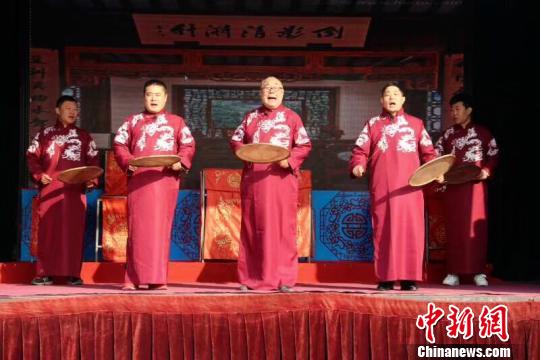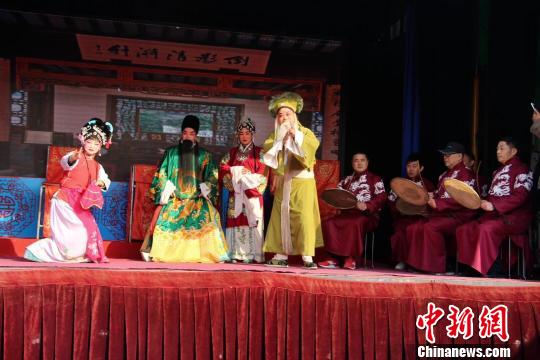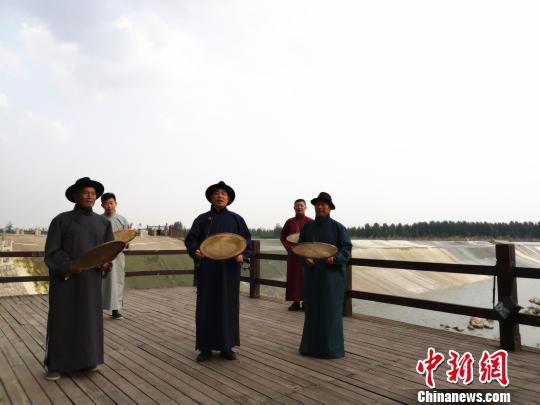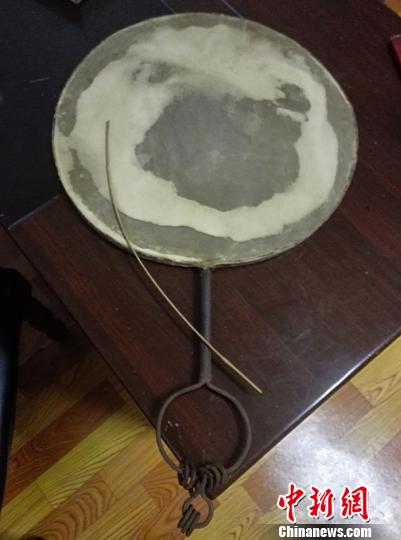The inheritors of the national intangible heritage "Duanguqiang" are short of successors, hoping to train professionals.

(Going to the Grassroots in the Spring Festival) The successor of the national intangible heritage "Duanguqiang" is lacking, and the inheritors hope to train professionals.
Zhongxin. com Dongping, Shandong Province, February 16 (Sun Hongyi) In the first month of the Spring Festival, in Dongping, Shandong Province, there are still an endless stream of tourists who travel and watch performances. The national intangible cultural heritage has become the "protagonist" of local festival performances, but it still faces development problems such as low visibility, few inheritors and low acceptance by young people.
"Don’t scold old age, raise my hand and don’t hit young people. Scold the old man for sacrificing his life, and beat the young man to make an enemy … …” On the 16th, Ding Lixin, the inheritor of Duanguqiang, played a round sheepskin drum and sang loudly at the fisherman’s Duanguqiang Cultural Theatre in Dongping County, and the iron ring on the handle jingled.

"At first, the drum-shaped lyrics were similar to the incantations of ancient wizards, which were not easy to remember." Ding Lixin said that his lyrics have been circulated for thousands of years and there is no written record. It is all taught by local fishermen from generation to generation. The lyrics need to be memorized, and the sheepskin drum turns several times and the hanging ring shakes a few times, all of which are exquisite. "Whether it is learning lyrics, movements, makeup and drums, you need to work hard."
Ding Lixin said that at present, there are very few people in the younger generation who are learning to drum up. In addition, fishermen’s living places are many and not fixed, and the living areas of old artists are scattered, which makes it inconvenient to organize classes to sing operas. Moreover, most old artists are over 60. "If the end drum cavity is not rescued and protected, there will be a situation where there will be no successors."

"Compared with other local operas, the accompaniment instruments with drum cavity are relatively simple and easy to learn and master." Ding Lixin said that his singing tone is suitable for ordinary people, and the requirements for the performance venue are not high. The band and actors can communicate and interact at any time during the performance.
Ding Lixin hopes that Duanguqiang will be liberated from the state of "respecting God" and integrated into modern performance elements. Through the establishment of professional teams and other means, we will cultivate professional talents so that more people can understand and love Duanguqiang.
In 2007, Ding Lixin established Dongping County Fisherman’s Duanguqiang Cultural Drama Club, which now has more than 30 people and has an average of three performances every week. In addition, his team also participated in public welfare performances and sent plays to the countryside. There are about 200 performances throughout the year.

The reporter learned that "Duanguqiang", also known as "Duanwu Opera" and "Duangong Opera", spread along the rivers, lakes and seas where fishermen live intensively. It has been introduced to Dongping for a hundred years. Originally, it was to worship the river god, but now it is a "regular performer" in activities such as fishermen celebrating harvest, wedding birthday banquets and renewing genealogy.
"In the past, fishermen were busy fishing on water all the year round, and their lives were monotonous. When you are tired, hum a few words to dispel the troubles of living on the water. " Yin yanyong, deputy director of the propaganda department of Dongping county, said that nowadays, people often sing at festivals to enrich their spare time and purify their hearts.
According to Yin Yanyong, the repertoire of Duanguqiang comes from folklore and historical stories, with a total of more than 50 pieces. Representative repertoires include "Liu Wenlong Catch the Exam" and "Twelve Samples". Its vocals include seven-character rhyme, cross rhyme, overlapping broken bridge, hammer tune, etc. The main accompaniment instrument is sheepskin drum. (End)